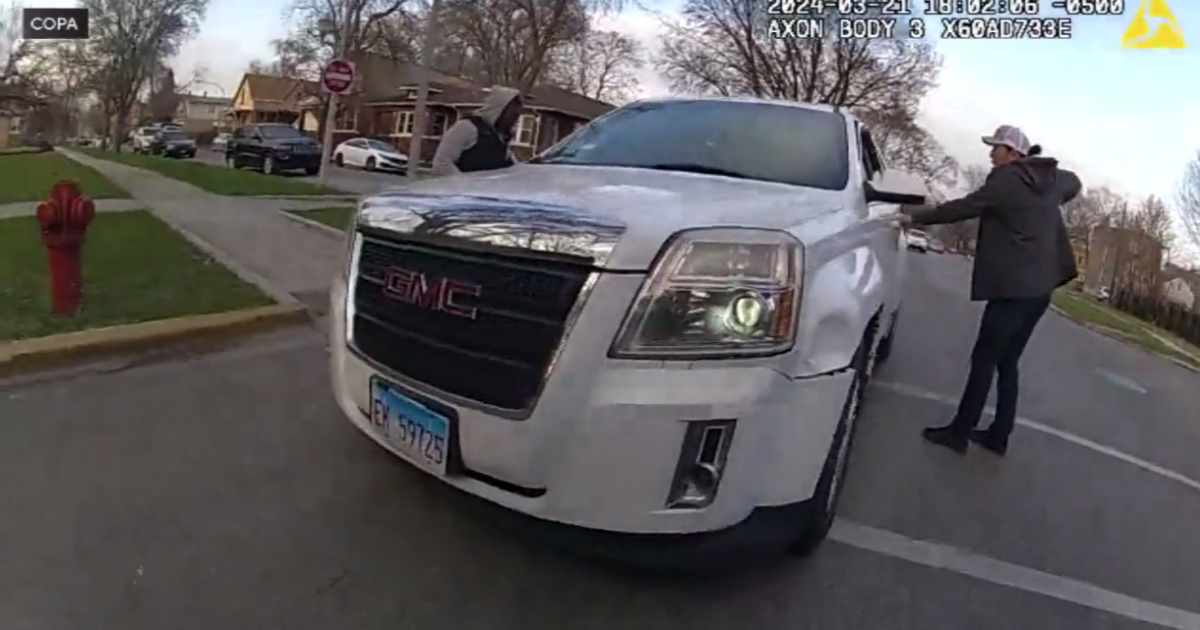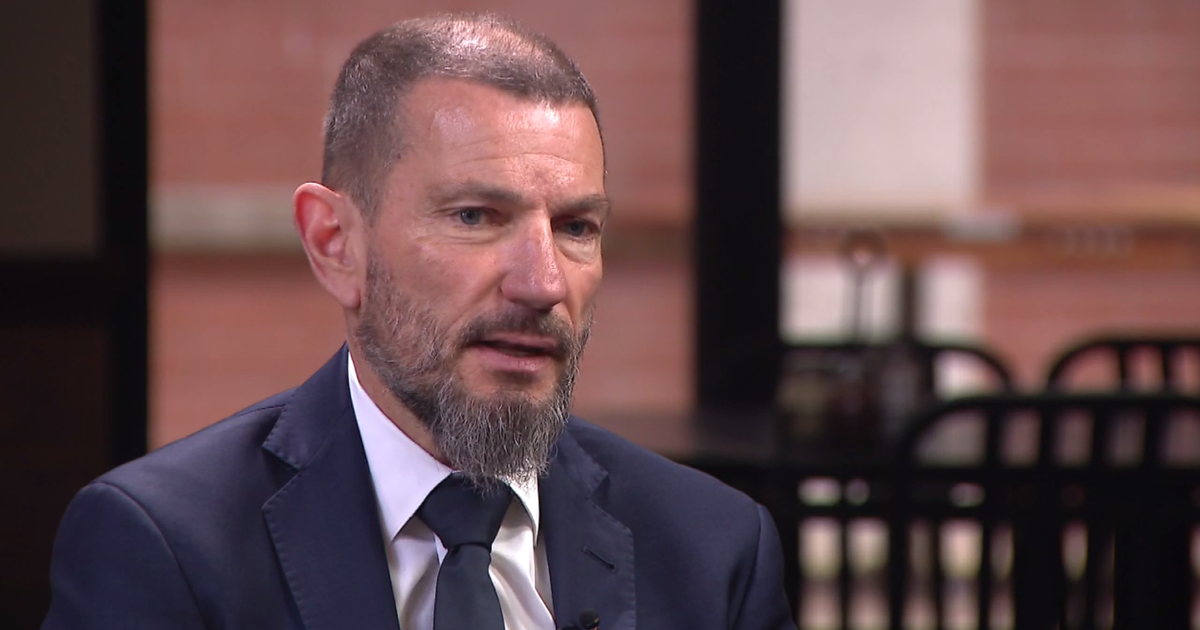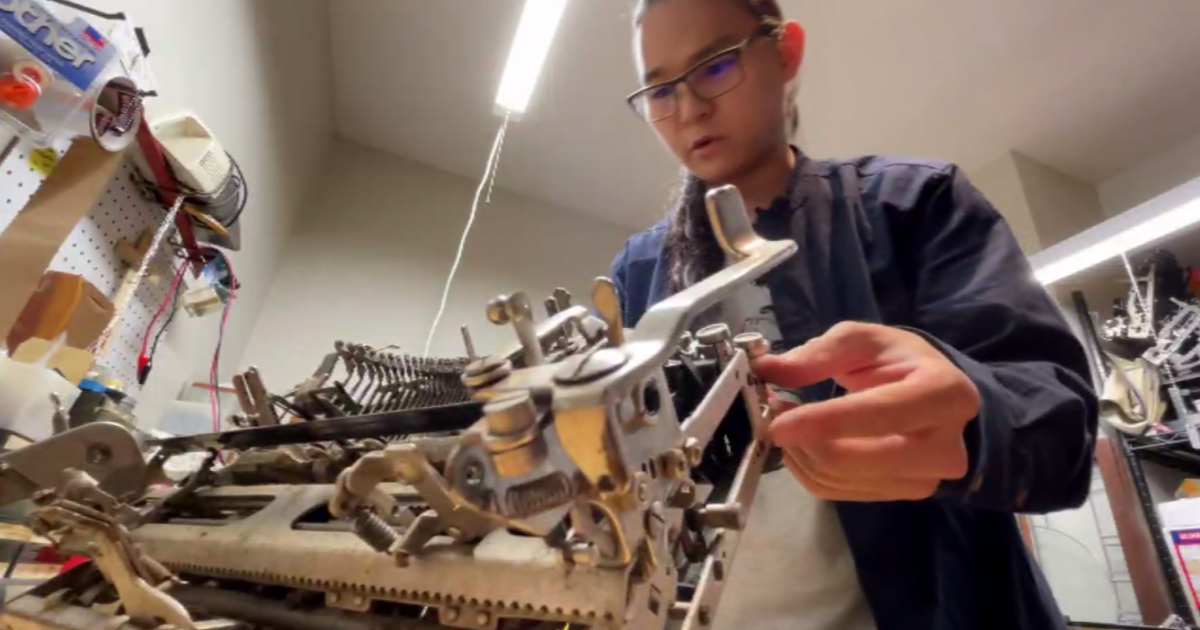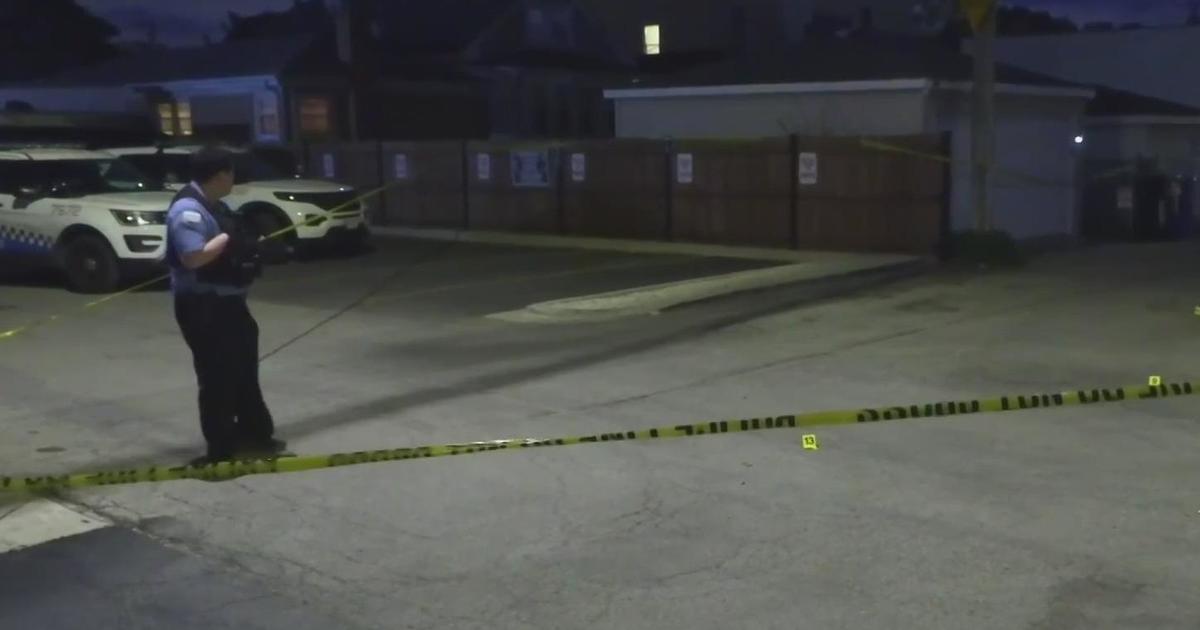Prosecutor To Jurors: Blagojevich 'Sold Out' Illinoisans
UPDATED 05/02/11 7:05 p.m.
CHICAGO (CBS) -- Federal prosecutors said Monday that Rod Blagojevich "sold out" the trust of Illinois voters by repeatedly trying to line his own pockets through his power as governor, but – borrowing from Shakespeare – the former governor's lawyer said the government's case was "a tale of sound and fury, signifying nothing."
Defense attorney Aaron Goldstein noted that dozens of federal prosecutors and FBI agents worked on the case and placed wiretaps on Blagojevich's phones and at his campaign office.
"Do you think they found a bag of cash hidden somewhere?" Goldstein asked the jury. "Do you think they found a secret bank account? No, they found nothing because there is nothing."
But Assistant U.S. Atty. Christopher Niewoehner stressed to the jury that it was not important that Blagojegvich never got any illicit money from his alleged schemes to extort campaign contributions from potential donors.
"The governor of Illinois was shaking people down," he said. "He was abusing his power as governor to get something for himself, and every time he tried to shake someone down, he violated the trust of the people of Illinois, and he violated the law."
LISTEN: Newsradio 780's John Cody reports
Podcast
After court, Blagojevich said that when he listened to the prosecutor's description of him, "I actually felt I stumbled into the wrong courtroom, because the guy he was talking about certainly isn't me. In fact, The things that he were saying were very hurtful."
Prosecutors have made an effort to simplify their case against Blagojevich after jurors at his first trial were deadlocked on all but count and he was convicted only of lying to the FBI.
That change of strategy was evident not only in the fact that Niewoehner presented the opening statement this time, instead of Assistant U.S. Atty. Carrie Hamilton, but in Niewoehner's repeated insistence to the jury that it didn't matter if Blagojevich's shakedown attempts were successful.
He told jurors that it only mattered that the defendant tried to extort potential donors for illicit contributions. "Right there, the crime is complete," he repeatedly said after reviewing individual allegations.
In fact, Niewoehner told jurors there were two good reasons Blagojevich couldn't get any of the money or other benefits he was seeking:
"One, the FBI arrested him before he could finish what he started and, two, somebody wouldn't play ball," Niewoehner said.
He systematically reviewed each of Blagojevich's alleged attempts to line his own pockets through official government actions.
"The people of Illinois put their trust in him to look out for them, and he sold out that trust," Niewoehner said.
For example, Niewoehner told jurors that on Nov. 4, 2008, when Barack Obama was elected president, Blagojevich had the power to appoint Obama's successor in the U.S. Senate and he decided to try and use that power to get himself campaign cash, a White House Cabinet post or another high-paying job.
"Instead of doing what was best for the State of Illinois, instead of finding the best senator, the defendant decided to do what was best for one person: himself," Niewoehner told newly seated jurors.
Niewoehner also outlined four other alleged shakedown attempts by Blagojevich, that he:
--tried to get campaign cash from a racetrack owner in exchange for legislation to benefit the horse racing industry.
-- demanded a construction company executive arrange hundreds of thousands of dollars in donations from other road builders in exchange for a $5 billion tollway renovation project.
--demanded a $25,000 campaign donation from an executive at Children's Memorial Hospital in exchange for additional state funding for providing health care to kids.
--demanded then-U.S. Rep. Rahm Emanuel arrange a Hollywood fundraiser in exchange for $2 million for a school in Emanuel's district.
Niewoehner spent only a few minutes at the end of his opening statement talking about the many tapes of FBI wiretap recordings that jurors will hear at the trial, highlighted by his now-infamous comment about the U.S. Senate seat.
"You're going to hear him say, 'I've got this thing and its effin' golden and I'm not giving it up for effin' nothing," Niewoehner said, while the uncensored version of that quote was displayed on a large monitor in the courtroom.
Goldstein stuck to his own simple theme in his opening statement: "Rod gets nothing."
"William Shakespeare once wrote: 'This is a tale of sound and fury signifying nothing,'" Goldstein said at the start of his opening statement. "In this case you will hear a lot of sound … you will hear a lot of fury, but you will have nothing."
Goldstein told jurors that most of the witnesses testifying against Blagojevich are doing so under plea agreements with the prosecution or under grants of immunity in exchange for testifying against the former governor.
"In the end, you'll still be left with nothing," Goldstein said. "It's the throw-something-against-the-wall-and-see-if-something-sticks approach."
"What ended up happening? Time after time after time, you'll be left with the same answer," Goldstein said. "Time after time, you will be left with nothing, absolutely nothing."
He also addressed each of the individual alleged shakedowns, saying each time, "Rod gets nothing."
Goldstein noted that, in the case of the school in Emanuel's congressional district, the school ultimately got the state grant it needed to build an athletic field.
Although prosecutors have said that Blagojevich forced the school to go through an "unprecedented" five-step process to get the money while he tried to squeeze Emanuel for a campaign fundraiser, Goldstein said the lengthy process to get the money was nothing more than the bureaucratic process in action.
"The school gets their money, they build a field and Rod gets nothing," Goldstein said. "Shakedown? They got their field and that was because of Rod."
Goldstein also drew repeated objections from the prosecution as he tried to defend Blagojevich against the allegation that he tried to shake down a Children's Memorial Hospital executive for campaign cash in exchange for additional state funding for the hospital.
"They (prosecutors) told you that whether a sick child got healthcare was in [Blagojevich's] hands. They told you that," Goldstein said. "No one – say what you want about Rod – no one cared more about healthcare than that man. … Sick children were cured because of him."
At that point, prosecutors objected and Zagel sustained the objection.
Both prosecutors and the judge have repeatedly said in court that the governor's so-called "good acts" while in office – such as expanding the state's health care program for children of low-income families – are not relevant to his alleged crimes and should not be mentioned to the jury.
Among other charges, Blagojevich is accused of holding up legislation to provide additional state funding for Children's Memorial Hospital while he tried to get a campaign donation from the hospital's CEO, Patrick Magoon. But Goldstein said the reason that legislation was held up was a mistake, not a shakedown.
According to Goldstein, when Blagojevich asked his then-deputy governor Bob Greenlee in late 2008 whether the hospital legislation could be held up for budgetary reasons, Greenlee mistakenly interpreted it as an order to hold up the funding.
"This man wasn't shaking down anyone. He asked Magoon for a fundraiser and that is all. That is all," Goldstein said. "What ended up happening? Nothing. … If not for Bob Greenlee's mistake, the rate increase goes through."
He also asserted that all of Blagojevich's talk about trying to negotiate a Cabinet position, control of a multi-million dollar non-profit organization, or other other high-paying position was just that: talk.
"Rod likes to talk. Rod talks and he talks and he talks," Goldstein said, adding that many people, including members of Obama's budding White House staff, approached Blagojevich's office in late 2008 to recommend possible U.S. Senate picks.
"Rod engaged in discussion, listened to their overtures; Rod listened and Rod talked," Goldstein said. "He was talking about his dreams. This man was not shaking down anyone, he was talking. He never made a decision."
Goldstein told the jurors that they're not supposed to judge simply whether or not Blagojevich did what was best for the state, but whether the government has proved beyond a reasonable doubt that his actions were criminal.
"The answer is no," Goldstein said. "The answer is no."
Prosecutors had hoped to present their first witness on Monday, but didn't have time. Instead, they will call FBI Special Agent Daniel Cain to the stand on Tuesday, followed by former Blagojevich chief of staff John Harris.
Judge Refuses To Restart Jury Selection
Opening statements were delayed several hours Monday, as Zagel and attorneys dealt with some last-minute issues regarding jury selection.
On Sunday, defense attorneys filed a last-minute motion to strike the jury panel slated to hear his corruption retrial and restart jury selection from scratch.
"Blagojevich cannot possibly receive a constitutionally fair trial with the current jury panel," the motion said.
Attorneys argued in essence that too many jurors said on their questionnaires that they think Blagojevich is guilty, and that it is not enough that the judge asked them in court if they could put those opinions aside and that they told the judge they thought they could do so.
Zagel said that he was confident that when a potential juror said he or she "thought" they could put their opinions aside, they were making a "clear assertion that this is the action that they would take."
The judge noted that both prosecutors and defense attorneys have used the words "I think" while arguing certain motions in court.
"It's a way we speak today," Zagel said.
Defense attorneys also had cited the interview that one dismissed juror had with WBBM Newsradio 780, saying she doesn't think the governor can get a fair trial because of the opinions other jurors talked about in the jury room.
Dismissed juror Michelle Bruning told WBBM Newsradio 780's John Cody that during jury selection, many potential jurors talked about the case — even though they were told not to discuss it during the selection process.
"Sitting in the room with other potential jurors, they all had a very strong opinion on him," she said. "Even though we were asked not to speak about it to each other … so many people would walk in there after their interview and say, 'Oh he's guilty already.' When you have an opinion of something, you can't turn it off right away."
LISTEN: Newsradio 780's Mike Krauser reports
Podcast
Zagel said that, after the court learned of that dismissed juror's interview, he spoke to the other potential jurors who were in the same panel.
He said that all six prospective jurors from that pool who were found to be "qualified" for the jury said that either they didn't hear another potential juror say they believed Blagojevich is guilty already, or assured him they would ignore that statement.
"In the end I believe that there was probably the expression of views by some jurors. The only six who remain on the panel have indicated that either they didn't hear them or they would disregard them," Zagel said. "We had a lot of jurors who had very strong opinions and they were excused."
The judge also noted that part of the reason that many potential jurors have formed an opinion about the case already is that Blagojevich himself invited the public to do so by repeatedly declaring his innocence and challenging the case against him.
"This is an unusual case in one respect and if you read all of the other cases that are customarily cited with respect to contaminating a jury pool, they all involve persistent publicity about the nature of the crime, the evidence that the police have or may claim to have and all of this is done while the accused sits silently in prison," Zagel said. "This is a case in which the defendant himself invited juror opinion."
The judge said that, while Blagojevich clearly has a right to discuss his case publicly, by repeatedly declaring his innocence and speaking to the media, he was also making an appeal to potential jurors to form their own opinions about the case.
"The defendant's desire to speak on his own behalf put him in a position where jurors weren't going to forget about him," Zagel said. "He was asking them to have an opinion and I think under these circumstances, much of the dilemma he faces here was created by himself."
The judge reiterated that, because all of the potential jurors in the current jury pool who have formed opinions about the case have also assured him they'd put those opinions aside and judge the case only on what they hear in court, they are "perfectly capable of reaching a decision based upon the evidence."
CBS 2 Web Producer Todd Feurer contributed to this report.



